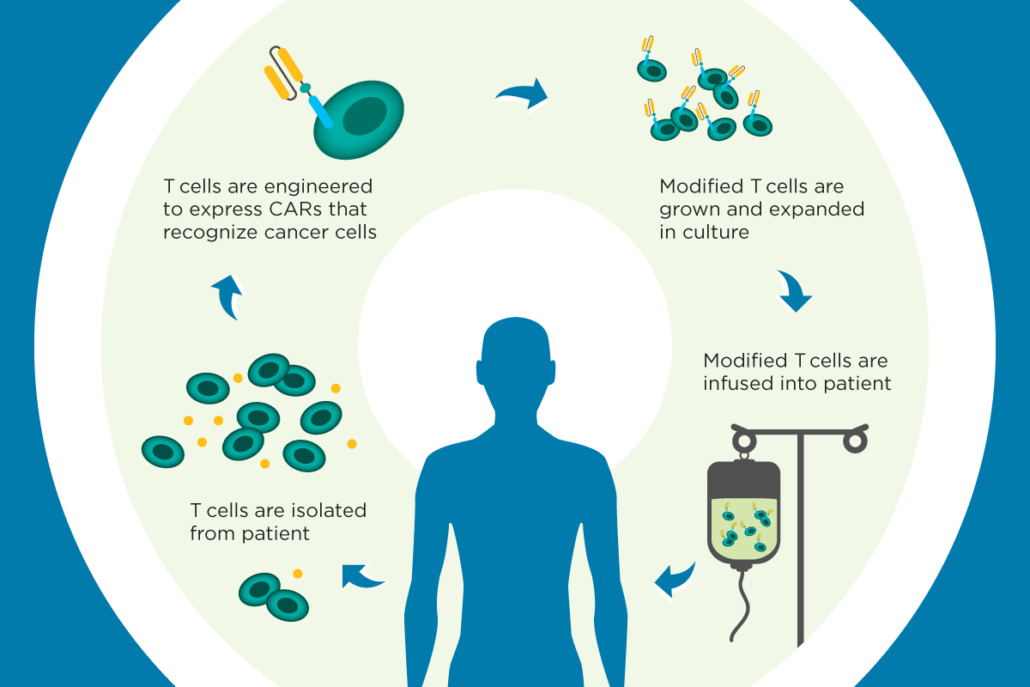
New way to safer CAR-T cell therapies
Interleukin 1 (IL-1) blockers may prevent serious adverse events triggered by CAR-T cell therapies, according to two independent studies.
In mice, the groups of Attilio Bondanza from San Raffaele Hospital Scientific Institute in Milan and of Michel Sadelain at Memorial Sloan Kettering Cancer Center, New York, showed that IL-1 inhibitors or monocyte depletion helped prevent both, neurotoxicity and cytokine storms (CRS, cytokine-release syndrome). These adverse effects (AEs), which could be life-threatening, are associated with administration of CAR-T cell therapies and have been managed so far by co-administration of IL6-receptor blockers such as Roche’s tocilizumab, which can prevent CRS but not neurotoxicity. Since CAR-T cell therapies developed by Kite Pharma/Gilead Sciences (axicabtagene ciloleucel) and Novartis (Tisagenlecleucel) have received market approval and since many CAR-T therapies in the clinical pipeline have shown efficacy, there is increased medical need to prevent such AEs.
The two types of CAR T cell therapies designed to treat notoriously difficult forms of blood cancers are targeted against the CD19 receptor at the surface of lymphocytes. However, the serious potential side effects of these treatmentssuch as neurotoxicity and cytokine-release syndrome (CRS), which can result in deathremain major challenges to overcome.
Understanding the detrimental effects of CAR T so far had been delayed by a lack of animal models. To tackle this problem, Attilio Bondanza and colleagues engineered mice with a human immune systems. They found that both CRS and neurotoxicity are triggered by the inflammatory molecule IL-1 and could be blocked by adding the IL-1 receptor 1-blocker anakinra, developed by Sobi AB, to the treatment regimen.
Using another mouse model, Michel Sadelain and colleagues confirmed that CRS is caused by IL-1, IL-6 and nitric oxide (NO), which are released by macrophages, and can be treated with pharmacological inhibitors. Furthermore, they inserted an IL-1 inhibitor gene directly into CAR T cells as an approach to prevent rather than treat CRS.
The groups’ results suggest that targeting IL-1 with anakinra or an improved CAR T cell design can reduce risks of CRS and neurotoxicity. These findings now must be validated in clinical trials.


 Unsplash+
Unsplash+
 Bayer AG
Bayer AG